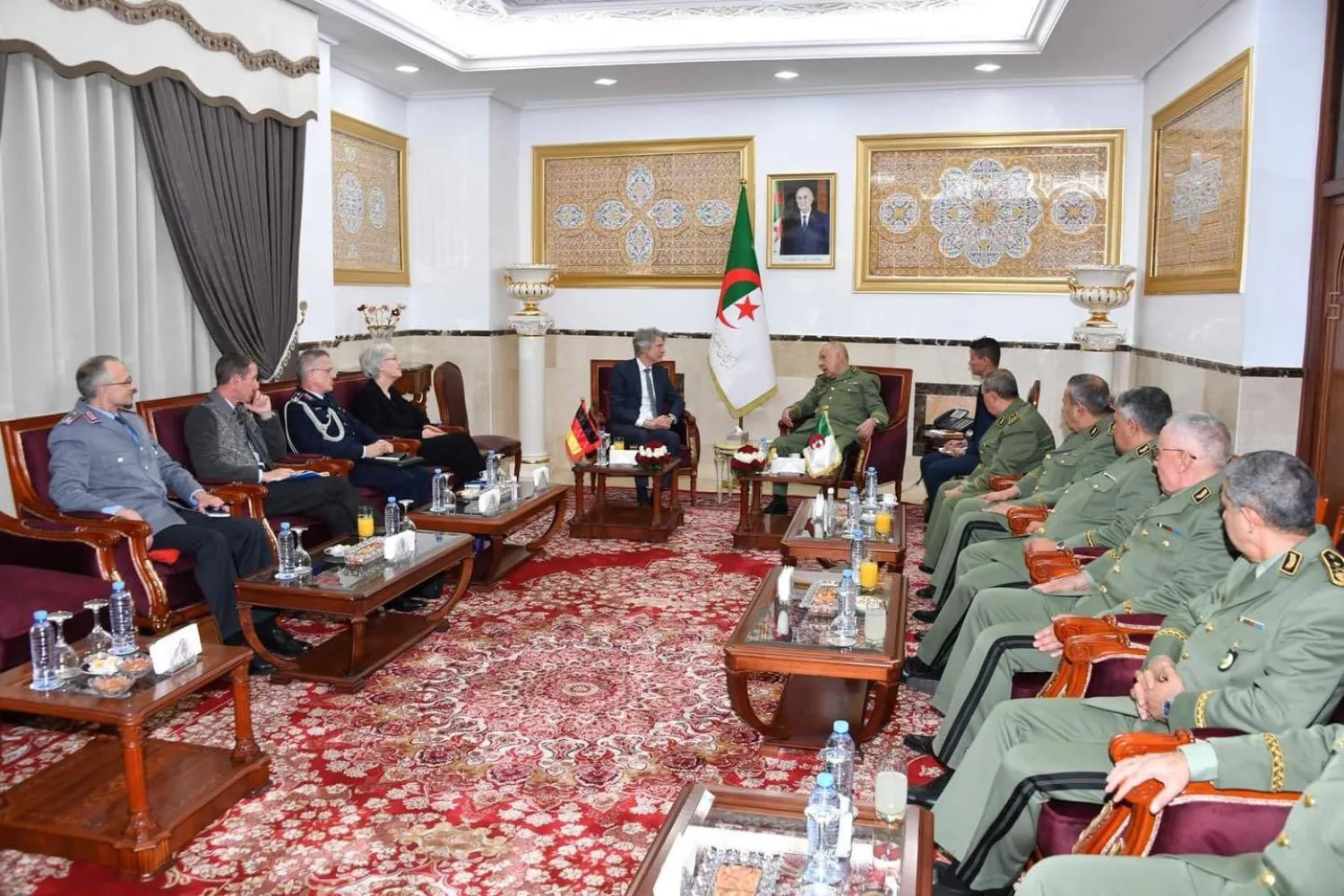A high-ranking German ministerial delegation discusses in Algiers the threats of terrorism and violent extremism in the Sahel region in light of significant security developments in Mali and Niger.
Headed by Jasper Wieck, Political Director and Foreign and Security Policy Advisor to the German Defense Ministry, the delegation left Algeria on Thursday after a meeting with the African Center for the Study and Research on Terrorism (ACSRT).
On its social media account, ACSRT posted photos of the meeting held between its director Idriss Mounir Lalalli, Wieck, and members of the two delegations.
It noted that members of the African Union-affiliated Center discussed with the German mission the recent threats posed by violent extremism and terrorism in Africa, especially in the Sahel region, and the measures taken by the AU to counter them.
Earlier this week, the German official held high-level meetings at the Algerian defense and foreign ministries. According to Algerian diplomatic sources, the delegation discussed security and defense issues in the region, particularly in light of the escalation of conflict in Mali and the entry of the pro-Russian Wagner militia on the front line in the north between the military regime and the Azawad opposition groups.
Also, Wieck held talks at the Defense Ministry with General Saïd Chanegriha, chief of People's National Army Staff.
The General reiterated his army’s will to consolidate military cooperation with the German partner and to include it in a new dynamic capable of achieving the objectives set out by the two parties, according to a statement issued by the Defense Ministry.
“I would like to emphasize that the German federation remains a quality partner for Algeria with which we strive to strengthen our bilateral relations. To this end, we reiterate our firm desire to further consolidate our military cooperation and to place it in a new dynamic capable of achieving the objectives set out by our two institutions,” Chanegriha said.
According to the ministry statement, the two parties also discussed the security challenges prevailing in the world, particularly in the Mediterranean Basin and on the African continent, and exchanged views on current issues.
In Algiers, Wieck later met with the Secretary General of the Foreign Ministry, Lounes Magramane.
The talks highlighted the excellent political relations between the countries and their common willingness to boost multifaceted bilateral cooperation.
According to the Foreign Ministry, the two officials also discussed international and regional issues of common interest, particularly the situation in the Sahel region.
Magramane focused on the efforts made by Algeria to preserve peace and stability in the region. He also listed the priorities Algeria will defend during its term as a non-member of the UN Security Council.
Algeria, Germany Discuss Anti-Terrorism Means in Sahel Region

Jasper Wieck, Political Director and Foreign and Security Policy Advisor to the German Defense Ministry hold talks with security officials in Algeria (Algerian Defense Ministry)

Algeria, Germany Discuss Anti-Terrorism Means in Sahel Region

Jasper Wieck, Political Director and Foreign and Security Policy Advisor to the German Defense Ministry hold talks with security officials in Algeria (Algerian Defense Ministry)
لم تشترك بعد
انشئ حساباً خاصاً بك لتحصل على أخبار مخصصة لك ولتتمتع بخاصية حفظ المقالات وتتلقى نشراتنا البريدية المتنوعة







